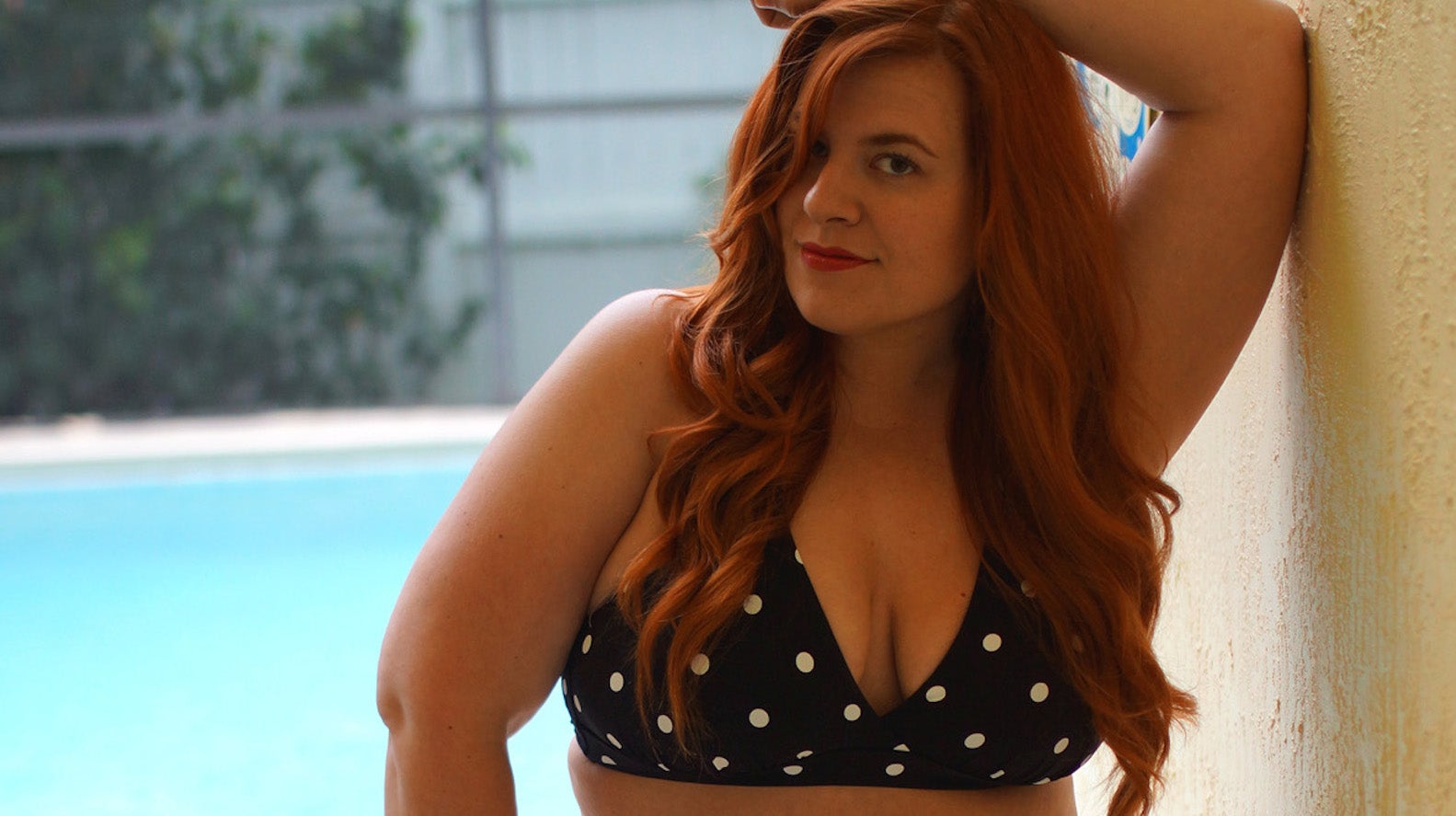What it feels like to be the internet’s token fat girl
When Brittany Gibbons started out as a blogger in 2007, she thought she was going to be writing about food. Eight years, many tears and one very daring TED Talk later, Gibbons has become an outspoken advocate for body positivity and female empowerment. But it didn’t always come easy, especially in her early days. “Job number one while being fat on the Internet is figuring out how fat you are,” she writes in her upcoming book, Fat Girl Walking, out on hardcover May 19. “The second rule of being fat on the Internet is taking charge of your fat on the Internet.”


When Brittany Gibbons started out as a blogger in 2007, she thought she was going to be writing about food. Eight years, many tears and one very daring TED Talk later, Gibbons has become an outspoken advocate for body positivity and female empowerment. But it didn’t always come easy, especially in her early days. “Job number one while being fat on the Internet is figuring out how fat you are,” she writes in her upcoming book, Fat Girl Walking, out on hardcover May 19. “The second rule of being fat on the Internet is taking charge of your fat on the Internet.”
Body talk was becoming a huge topic across almost all forms of media, but unfortunately, the majority of it surrounded the effects of unrealistic beauty standards and bullying on teen girls. Having a daughter myself, I could see why these conversations were important, but what about the rest of us? What about the women who were being fat-shamed in the media, discriminated against in the workplace, mocked on television, and ignored by the fashion companies? Where was the guide on how to be thirty and plus size and love yourself? Where were all those conversations?

They weren’t happening yet, leaving an entire population of women completely disenfranchised, and I saw this as a chance to become a point of reference and authority for plus-size women online. I was already speaking out about my weight and my struggles with body image, and was making huge strides not only in personally loving my size, but in helping others do the same, so that Band-Aid had already been ripped off.
Now it was just a matter of turning the societal conversation from fat discrimination to body acceptance. Plus-size people were often portrayed in society as villains. We affected your health-care costs with our diabetes and our heart attacks. We all wanted gastric bypass and lap-band surgery as an easy way out. We were eating all the fast food from the dollar menu. We were lazy, lacked self-control, and were unpleasant to look at. We were an epidemic.
So those are the conversations I started having. I denounced body shaming. I promoted loving your body, just as you were. I challenged fashion companies to step up to the plate and provide us with stylish options and realistic models. I grabbed my bathing suits and skinny jeans and talked about fashion that worked for my body. And I started taking my clothes off every chance I got; hell, I gave every sex worker in America a run for her money.

The more people saw me, the more normal my body became to them. People see a naked thin woman and think, Oh, isn’t she beautiful. Then they see a naked plus-size woman and think, Oh, bless her heart, she feels good about herself, that’s adorable. I was going to keep showing the world my body until the reaction stopped being how nice for her and started being look at that beautiful woman.
This quest solidified me as the Internet’s token fat girl, and I appeared on news shows and podcasts and was quoted in magazines, all because I was the authority on being fat. Something that years ago would have humiliated me, I now wore like a badge of honor. What’s the worst that could happen? I’m called fat? My self-esteem was made bulletproof, and as a result, I’d become fearless.
From FAT GIRL WALKING by Brittany Gibbons. Copyright (c) 2015 by Brittany Gibbons. Dey Street, an imprint of William Morrow Publishers. Reprinted by permission.